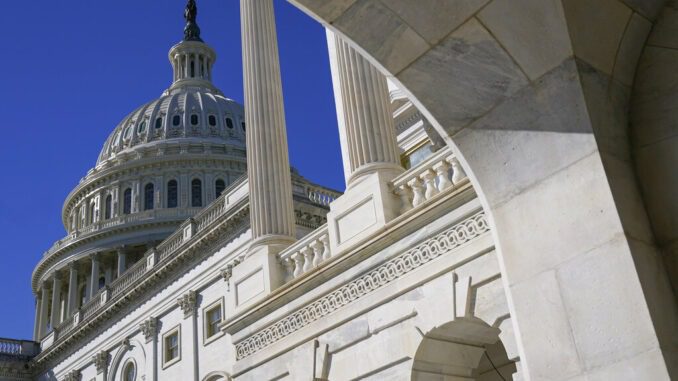
After the global “surprise” of a Covid pandemic, it is vital to prepare for events once thought unthinkable. Unchecked, America is headed for default.
Economic experts now predict double-digit inflation before the end of the year. Massive trillion-dollar deficits are estimated to push the nation’s debt to a staggering $30 trillion at the same time. Fed policies to both fight inflation and borrow money to fund this debt will likely raise interest rates. While many nations borrowed heavily during the pandemic, others did not, and America must compete for funds.
A loss of the value of the dollar due to inflationary pressures has potential disastrous effects on all Americans who rely on fixed incomes to pay their daily bills. If our government defaults on its debt — or can’t raise more money to pay its bills — Americans who depend on payments from Medicare, Medicaid, Social Security and other government assistance face further risks.
A debt default would also have repercussions for federal funds to states. If Congress needs to make rapid and drastic cuts, money for the states would likely be among the first to be put on the fiscal chopping block.
Members of Congress are both unable and unwilling to address this dire situation, and so far, except as constituents, state governments are not at the table. Constitutionally, we are a nation of states, and states not only have the opportunity — they have the responsibility — to help force discipline on federal spending and debt.
The authors of this article advise or lead a Compact for a Balanced Budget, an interstate compact agreement currently with five member states, which has the most direct roadmap for state legislators to use to push federal budget and debt controls.
As a Compact, we represent states that have urged three key steps as part of the roadmap, and we have invited other states to join us. First, we must reform the congressional budgeting process. Second, states can — through the balanced budget amendment we’ve proposed — assert control over the nation’s debt limit. Third, we’ve urged Congress to institute the necessary structural reforms to protect critical entitlement programs.
On a short-term basis, the first two of these actions can be achieved in less than 24 months if enough states — three-fourths of us — join the Compact. The third action is a safety measure to protect states and recipients of “safety net” entitlements from a debt crisis over the long term.
To help educate Americans on the danger of default, we have helped sponsor the Debt Default Clock. On the advice of bankers and economists who are experts in debt, we’ve learned that we are closer to default on U.S. debt than any time in recent history. The Debt Default Clock website is www.debtdefaultclock.us.
By any measure, Congress does not take the budgeting process seriously. The process has been broken for decades and each year grows more dysfunctional and antiquated. The Compact provides the mechanisms to both instill congressional budget discipline and to provide the states a role in determining appropriate debt levels for our nation. As more states join the Compact, the role of the state legislatures in influencing congressional fiscal actions likely grows and further reflects the role our nation’s founders envisioned as states joining a union.
Protecting critical “safety net” entitlement programs to recipients has to be a top priority of state legislators. While states co-fund many of these entitlements, they have little to say as to who gets entitlements, how entitlements are funded and how to adjust costs to meet individual state needs. The Compact provides the ideal forum for member states to formally engage with Congress to formulate the necessary steps to allow this transition to occur.
Now is the time for the N.C. state legislators to step up and do the right thing. Joining the Compact for a Balanced Budget through passage of SB 414 will provide a key signal to constituents that while the nation faces a daunting future, state legislators are ready, willing and able to provide the necessary leadership to prevent the looming disaster. We encourage state legislators to find out more at www.compactforamerica.org/balanced-budget-compact-project.
Lt. Gov. Mead Treadwell served in Alaska from 2010 to 2014. He is chair of the five-state Compact for a Balanced Budget, an entrepreneur and private investor.

